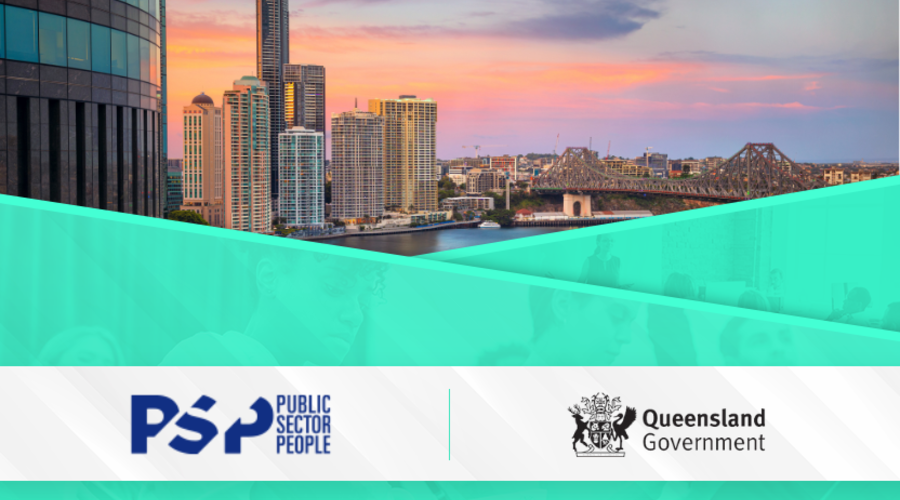Utlising A Swot Analysis For Your Career Planning

By Emily Harris
Many of us are familiar with a SWOT analysis; a popular tool to help an organisation's strategic direction. BUT did you know that you can also conduct a personal SWOT analysis to help prepare you for future job interviews, or to help guide your future career direction?
Today, we examine how the SWOT analysis can be applied to your own career planning, especially when you’re considering a new public sector job. See below:
What Is A Swot?
A Swot Analysis Is Divided Up Into Four Key Sections; Strengths, Weaknesses, Opportunities And Threats. It’s A Common Evaluation Tool People Use When Strategic Planning, Especially Within Business And Military Situations. It’s Designed To Help Users Identify The Strengths And Opportunities An Organisation/institution Or Individual Has Which Will Aid In Their Further Growth And Development. Furthermore, The Analysis Will Also Highlight Any Weaknesses Or Threats Facing The Organisation Or Individual Which Could Be Detrimental To Them Or Give Their Competitors The Upper Hand.
As a general rule, strengths and weaknesses are made up of internal factors; things that your organisation has some element of control over like their service offering or their website. Opportunities and threats on the other hand are made up of external factors; things that are outside of the organisation’s control but can still have an impact, like political, environmental or economic factors.
How To Apply A Swot To Your Career Planning
The Key To Creating A Personal Swot, Is Firstly To Be Honest With Yourself, When Listing Your Strengths, Weaknesses, Opportunities And Threats. Listing What You Would Like To Think Are Your Strengths Or Ignoring Certain Weaknesses, Won’t Be Useful In Helping You Identify The Areas You Can Improve On, Or The Areas You Should Pursue In Your Career Development. So Ultimately, If You Feel You Can’t Provide An Honest Analysis Of Yourself, Seek Out Friends And Ideally Other Professionals In Your Field Who Can Provide Constructive Feedback In Regards To Your Strengths And Weaknesses (or Areas To Improve). It Can Also Be Useful To Look Over Past Appraisals And Performance Reviews To Help Inform Your Judgement. External Feedback Might Even Be Able To Point Out A Strength You Hadn’t Considered Yourself.
Stepping Through the SWOT Process
When conducting a SWOT analysis to help determine your next steps within your career – whether that be deciding to pursue a new job or shift the focus of your career goals etc. – it’s important to identify your strengths and weaknesses within a professional context first. Once these have been established, you can then consider how these strengths can be utilised within your work environment. For example, having negotiation skills/experience could present great opportunities within local council as so many roles within this space require negotiating/managing different stakeholders. Alternately, once your weaknesses have been established, you can consider the risks they pose to your professional environment. For example, not being digitally confident could pose a threat to your job, if your entire department within your local council is shifting processes from one legacy system to a newer online platform.
Strengths
While it can be difficult or cringeworthy to list all of your professional strengths, this is not the time to be modest. A great way to start if you’re struggling is to consider the responsibilities/tasks within your current or most recent roles that you have enjoyed doing, as we’re usually good at the things we enjoy. You can also list two or three quantifiable things that you’ve achieved in your recent roles – maybe you were the lead on a particular community project, or implemented a new system to help with responding to customer/community enquiries. Once you’ve thought of two or three quantifiable tasks, consider what it took to achieve those things. List all the skills and experience that were necessary for these tasks to be completed.
When listing your professional strengths, it’s also worth considering the following:
- The skills, knowledge, and abilities you have that make you indispensable to your employer. For example, are there tasks you do that others come to you for guidance or help on doing?
- Your skills which have been highlighted as valuable in your job performance reviews.
- The skills that are in demand currently in the marketplace (e.g cloud-based software knowledge, emotional intelligence) – do you possess any of these skills?
- What are your ‘hard’ and ‘soft’ skills relevant to your job?
Weaknesses
Identifying your own weaknesses can be difficult, but it’s important to be honest with yourself and identify any skill gaps, as this gives you a clear understanding of what you can work on to further develop your career prospects.
To start with, try thinking of a mistake you’ve made and what you did, or are doing to try and correct it. This could be as simple as realising your time management is lacking, as you are always working to the last minute of a deadline and don’t have time to plan for future tasks. Another way to identify weaknesses is to look over past evaluations during formal performance reviews or general feedback from supervisors, mentors etc. Perhaps you can identify a pattern in some of the feedback you’ve received – maybe it centres around working on your communication skills or gaining more experience in managing budgets.
If one of your career goals requires you to be proficient in a certain skill that you’ve identified in your SWOT as a weakness e.g managing budgets, you then have more understanding of what you need to do to achieve that career goal; become more proficient in excel, take an accounting course etc. Anything to help close this budgeting skill gap.
When considering weaknesses, asking yourself the following questions can also be quite revealing:
- Is anything happening in your work environment (your employer, you industry, or your work/profession) that makes you feel vulnerable or unprepared?
- Do you avoid any part of your work because you feel you don’t have the appropriate skill level or you don’t like to do that work?
- Do you feel you are less effective in doing some things than you would like to be?
- Are new projects or initiatives being considered?
- Do you see any areas where new projects or initiatives should be considered, but aren’t yet?
- Are there any classes or Certifications you would like to take/complete that you think will be advantageous to your career long-term?
- Is anything new happening within your government agency that looks fun or interesting to you?
Threats
As an employee and especially within the public sector (where there are a number of external political factors impacting how things are run) you face all sorts of threats. Your job could become redundant, your contract might not be renewed, budgets for projects might be minimised or there becomes minimal areas for growth. Outside of that, if you’re applying for new roles, you also face the threat of other qualified candidates competing for the same roles, all with their own set of unique skills and experiences. Consequently, when interviewing for jobs and when overcoming threats to your professional development, you’ve got to become your own advocate and build your brand should anything happen.
To help identify the potential threats that could impact you and your career, consider the following:
- Are there opportunities for growth, training or advancement in your current job?
- Is your industry or field ‘in decline’?
- Is a shift in management pending or currently occurring?
- Are the budget cuts on the horizon?
- Is your organisation starting to outsource more and more?
- Are you finding a lot of candidates with more experience in a particular area within the job market?
The answers to these questions can help highlight potential threats to your current career plans or even your job search. Ultimately, knowing this information is invaluable because it can help you to prepare and strategise ways to mitigate the risk or threats long term. For example, if you feel like your industry is in the decline, you can brainstorm ahead of time another avenue to transition into, before being threatened with redundancy. Or if you find you’re coming across candidates for the same jobs that you’re applying for with more customer service skills, you can then work on building these skills in yourself so you become more competitive.
Make Your Plan
Now That You Have A Pretty Good Grasp On What Sets You Apart, The Things You Can Work On, What Your Ideal Role Looks Like, And Some Of The Factors That Might Threaten Your Career Advancement, It’s Time To Put That Knowledge To Good Use. This Is Where The Real Work Begins—figuring Out What To Do With That Information.
But self-awareness can go a long way. Once you know the things you do well, you can strategise the ways/opportunities that allow you to do more of that. Knowing your shortcomings means you can figure out ways to close your identified skill gaps; whether that be taking a class or changing up your processes.
Take advantage of resources at your current disposal. Consider approaching your manager and working out a plan that could involve job shadowing, mentorship, or additional feedback to help you improve. Or alternatively, if you’d like to utilise potential opportunities identified in your SWOT and look for a new role elsewhere, you can reach out to a specialist recruiter within the public sector to discuss your options.









Job Sectors
All content copyrighted | Privacy Policy | Cookie Policy | T&Cs | Powered with 💙 by Shazamme


